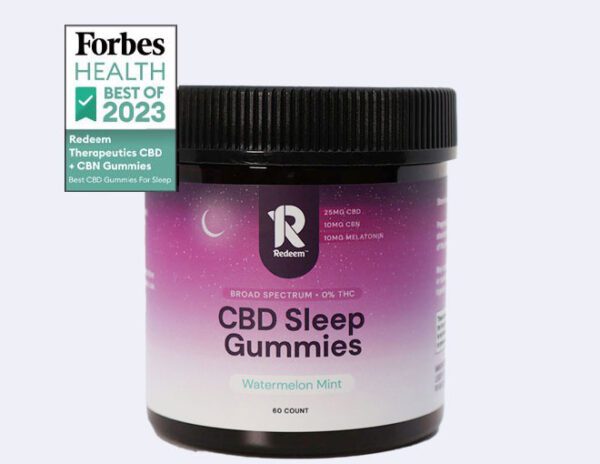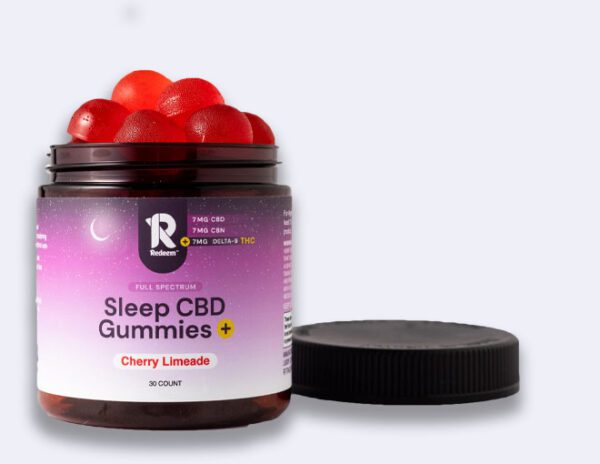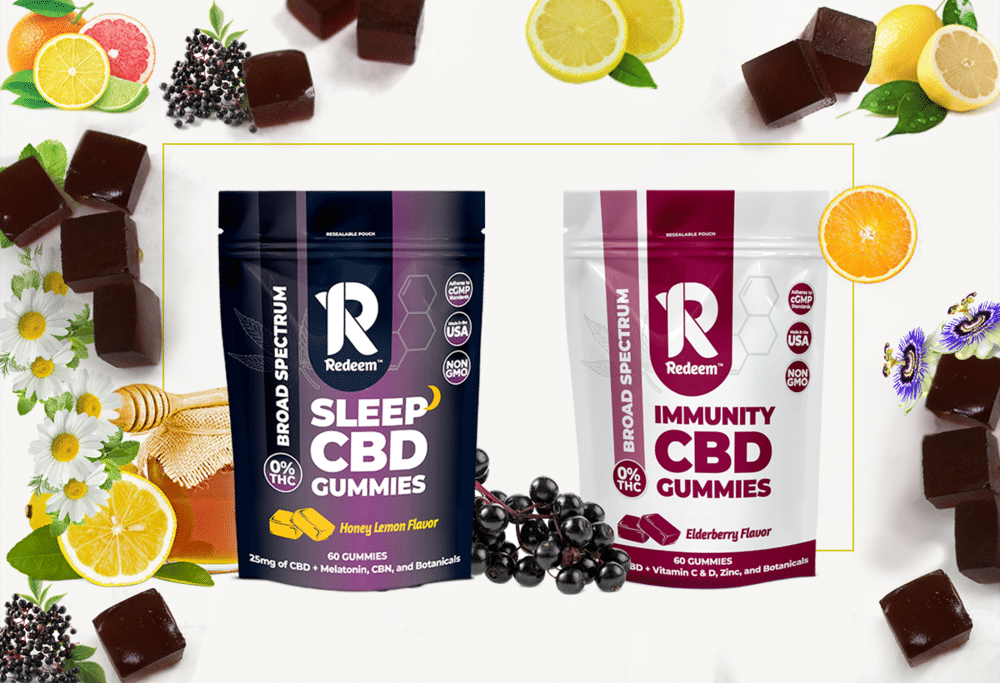Your Cart Details
By Angela Queen | Jul 24, 2025
7 Benefits of CBD for Sleep Backed by Science
7 Benefits of CBD for Sleep Backed by Science
By Angela Queen | Jul 24, 2025
Struggling to fall asleep, stay asleep or wake up refreshed? You are not alone. An estimated 50–70 million Americans deal with chronic sleep issues, and interest in natural solutions is rising fast. Cannabidiol (CBD) is one of the most studied plant compounds for sleep support, with promising research across anxiety, pain and circadian-rhythm regulation.
Below, we break down seven evidence-based benefits of CBD for sleep, explain how to pick the right product, and offer practical tips so you can drift off with confidence.
Why Quality Sleep Matters
Healthy sleep cycles powers everything from memory organizing and hormone balance to immune resilience and healthy energy production. Adults need seven to nine hours per night.
Fall short and you may experience fatigue, mood swings, higher cortisol levels and increased risk of chronic disease. Prescription sleep aids can help, yet they often come with daytime grogginess or dependence concerns. This is where non-intoxicating CBD steps in as a gentle alternative.
7 Science-Backed Benefits of CBD for Better Rest
1. Calms Anxiety and Racing Thoughts – plus Passionflower and Chamomile
Generalized anxiety and pre-bedtime rumination are major insomnia triggers. Clinical trials show that 25–75 mg of oral CBD significantly reduces anxiety scores in adults, which correlates with improved sleep quality. By interacting with serotonin 5-HT1A receptors, CBD promotes a sense of calm that makes it easier to wind down.
Herbal allies like passionflower and chamomile offer additional soothing effects by boosting GABA activity and reducing cortisol. When combined with CBD in gummies, like in our CBD Sleep Gummies, these botanicals create a synergistic blend that quiets the mind and prepares the body for rest.
2. Enhances Relaxation by Boosting GABA Activity – with Griffonia Seed Extract
Gamma-aminobutyric acid (GABA) is the brain’s primary brake-pedal neurotransmitter, helping slow neural activity in preparation for sleep. Preclinical studies suggest CBD may modulate GABA-A receptor signaling, producing muscle relaxation and a smoother transition from wakefulness to slumber. Formulas that pair CBD with Griffonia Seed Extract, a rich natural source of 5-HTP, further elevate serotonin and, in turn, GABA levels. This one-two punch eases physical tension and mental chatter so falling asleep feels effortless.
CBD Sleep Gummies with CBN, Melatonin & Botanicals
3. Increases Total Sleep Time – powered by CBN
A 2019 study showed of adults with anxiety and poor sleep found that 66.7 percent experienced longer overall sleep duration after one month of daily CBD. Participants also reported fewer nighttime awakenings, indicating deeper, more restorative rest. Adding cannabinol (CBN) to your nighttime routine may amplify these benefits. Early studies suggest CBN works on the same CB1 receptors as CBD but with a stronger sedative profile, making the duo an ideal option for people who wake frequently during the night.
4. Improves REM Sleep Behavior
REM sleep is the dream-heavy phase crucial for emotional processing. Disturbances here are common in PTSD. Early research shows CBD reduces REM sleep behavior disorder events, allowing users to stay safely immobilized and cycle through healthy REM stages.
5. Helps Regulate Circadian Rhythm – and Supports Natural Melatonin Production
Your internal body clock relies on the endocannabinoid system for signaling. For some older adults and shift workers that signaling can be off. CBD indirectly supports endocannabinoid tone, which can promote more consistent sleep-wake cycles and make it easier to stick to a regular bedtime. Pairing CBD with a low dose of melatonin aligns hormonal cues with circadian rhythms, helping you fall asleep faster and wake at the right time without grogginess.
6. Eases Pain That Keeps You Up
Chronic pain is a top reason adults toss and turn. CBD’s anti-inflammatory properties – combined with its influence on TRPV1 pain receptors – can potentially offer pain relief and lessen discomfort so falling asleep feels natural instead of forced. For topical relief, try our fast-acting RedeemRx THC Gummies for Sleep alongside a soothing nighttime routine.
7. Reduces Sleep-Interrupting Cortisol Spikes
High evening cortisol can leave you wired. One crossover study found that 300–600 mg of CBD lowered serum cortisol more effectively than placebo, suggesting it may blunt stress-related hormonal surges that disrupt deep sleep.
Choosing the Right Forms of CBD Product
Not all CBD is created equal. Keep these factors top of mind:
- Spectrum: Full-spectrum CBD combines cannabinoids, terpenes and flavonoids for an entourage effect. Broad-spectrum removes detectable THC, while isolates contain pure CBD only.
- Potency: Aim for 15–50 mg of CBD per serving for sleep. Products like our CBD Gummies for Pain and Sleep offer an easy, precisely dosed option.
- Third-Party Testing: Verify every batch for potency and contaminants. Look for Certificates of Analysis (COAs) linked on product pages.
- Delivery Method: Oils absorb quickly under the tongue, while gummies provide steady release. Topicals work on specific areas but should be paired with internal sleep support.
How to Use CBD for Better Sleep
- Start Low and Go Slow: Begin with 15–25 mg about 30–60 minutes before bed. Increase in 5–10 mg increments every few nights until you notice consistent results.
- Stay Consistent: Daily use helps build steady blood levels and reinforces circadian-rhythm cues.
- Create a Bedtime Ritual: Combine CBD with dim lights, gentle stretching, passionflower or chamomile tea to signal your brain it is time to rest.
- Track Results: Use a sleep app or journal. Note dosage, timing and wake-ups to find your sweet spot.
- Avoid Alcohol and Large Meals Late: They can compete with CBD breakdown and blunt its benefits.
For an easy starter bundle, explore our Best THC Gummies for Sleep guide to compare flavors, strengths and added botanicals like melatonin or CBN.
Safety, Side Effects and When to Talk to Your Doctor
CBD is generally well tolerated, with mild side effects such as dry mouth or drowsiness at higher doses. Because it can interact with certain medications (especially those that carry a grapefruit warning), consult your healthcare provider if you take prescriptions for blood pressure, anxiety or epilepsy. Pregnant or breastfeeding individuals should avoid cannabinoid products until more research is available.
The Bottom Line
From calming anxious thoughts to lengthening total sleep time, CBD offers a multifaceted approach to restorative rest that prescription pills often lack.
High-quality, third-party-tested products paired with smart sleep hygiene – and complementary botanicals like passionflower, chamomile, Griffonia Seed Extract, CBN and melatonin – can help you wake up refreshed and ready to tackle the day.
If you are ready to experience the science-supported benefits firsthand, explore RedeemRx’s curated line of sleep solutions and drift off with peace of mind.
CBD for Sleep: Frequently Asked Questions (FAQ)
1. Will CBD help with sleep apnea?
CBD may ease anxiety, pain and inflammation that can worsen disrupted sleep, but it has not been proven to treat sleep apnea directly. Talk with a sleep specialist before adding CBD to your apnea management plan.
2. How long does CBD take to work—can I use it for short-term sleep problems?
Most people feel oral CBD within 30–60 minutes, making it useful for short-term sleeplessness caused by stress, travel or a busy mind. Consistency matters, though; data show the greatest benefits after two to four weeks of nightly use. Start low (15–25 mg), track your results for a week and adjust as needed.
3. Is CBD approved by the Food and Drug Administration for sleep?
As of now, the Food and Drug Administration (FDA) has approved only one cannabidiol medicine (Epidiolex) for rare seizure disorders—not for insomnia or sleep apnea. Always buy from brands that provide third-party lab tests to verify potency and purity.
4. What is the best sleeping environment when using CBD?
A calming sleeping environment helps CBD work its best. Keep the room cool (around 65 °F), dark and quiet. Power down screens an hour before lights-out, diffuse a gentle scent like lavender and consider low-watt bulbs or red-light night-lamps. Pairing CBD with these habits creates a cue that it is time for restorative rest.
5. Can CBD interact with other medications or health issues?
Yes. CBD is processed by the same liver enzymes (CYP450) that metabolize many prescriptions. If you’re taking blood thinners, blood-pressure tablets or antidepressants—or have a serious medical condition such as liver disease—consult your doctor first.
Read more about CBD and Blood Pressure Medications or CBD and Medications.
People who must avoid even trace THC (e.g., federally regulated employees) should choose broad-spectrum or isolate formulas and review lab reports closely.
6. What are the side effects, including daytime drowsiness?
Most users report mild, transient effects including dry mouth, light-headedness or digestive upset at higher doses. Daytime drowsiness is uncommon at sleep-time doses (15–50 mg), but if it occurs, reduce your serving size or take CBD earlier in the evening. Rarely, some experience changes in appetite or mood—another reason to start low and monitor how you feel.
7. Should I combine CBD with melatonin, passionflower or CBN?
Synergistic blends can be helpful. Low-dose melatonin may reinforce your circadian rhythm; passionflower and chamomile enhance relaxation; CBN provides a heavier sedative tone. Choose products that clearly list milligrams of each ingredient so you can fine-tune your routine without overdoing it.
8. Is topical CBD useful for sleep or only oral products?
Topicals excel at relieving localized pain that may keep you awake—think sore shoulders or restless legs. For systemic benefits like calmer thoughts and longer total sleep time, pair your cream or roll-on with an oral gummy, capsule or tincture.
9. Can I travel with CBD sleep products?
Under U.S. federal law, hemp-derived CBD with less than 0.3 percent THC is legal to carry across state lines. When flying, keep the product in its original container along with the lab report to avoid confusion at security. International rules vary—always check local regulations before you pack.
10. How do I know if my CBD is working?
Track three metrics:
- Sleep latency (how quickly you fall asleep)
- Nighttime awakenings
- Morning energy
Use a sleep-tracking app or a simple journal for two weeks. If you see steady improvements—and minimal side effects—you’ve likely found your ideal dose and timing.
 CBD Gummies
CBD Gummies CBD Oils
CBD Oils CBD Capsules
CBD Capsules CBD Cream
CBD Cream CBD for Pets
CBD for Pets CBD + THC Gummies
CBD + THC Gummies Delta 8 Gummies
Delta 8 Gummies Delta 8 Capsules
Delta 8 Capsules Full Spectrum CBD Oil
Full Spectrum CBD Oil  THC Drops
THC Drops Stress
Stress


